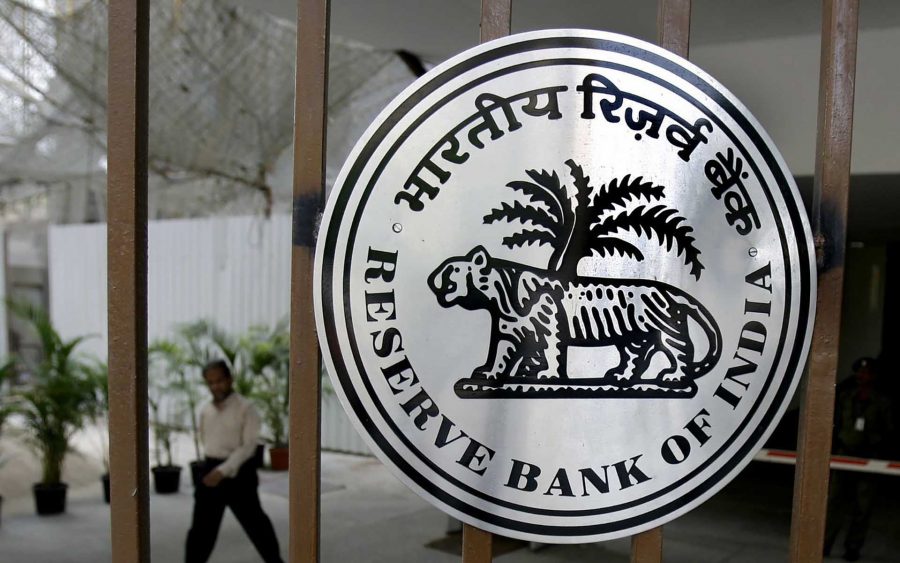
RBI holds policy rate at 5.15%, sticks to market expectations
RBI left its policy rate unchanged at 5.15 per cent. Consequently, the reverse repo rate under the Liquidity Adjustment Facility (LAF) remains unchanged at 4.90 per cent and the marginal standing facility (MSF) rate and the bank rate at 5.40 per cent.

The Monetary Policy Committee (MPC) of the Reserve Bank of India (RBI) on Thursday (February 6) announced its sixth and last monetary policy for the current financial year (FY19-20).
RBI left its policy rate unchanged at 5.15 per cent. Consequently, the reverse repo rate under the Liquidity Adjustment Facility (LAF) remains unchanged at 4.90 per cent and the marginal standing facility (MSF) rate and the bank rate at 5.40 per cent.
The Monetary Policy Committee (MPC) resolution of the RBI was published on its website at 11.45 am on February 6, 2020 wherein it announced its decision of leaving its policy rate unchanged at 5.15 per cent.
The RBI MPC committee, which is led by governor Shaktikanta Das, announces its decision on a bi-monthly basis. This was in line with what the market had expected.
The RBI says there is need for adjustment in interest rates on small saving schemes. External benchmark system has strengthened monetary transmission. Impact of past rate cuts to pull up domestic demand. The RBI expects inflation to remain elevated through H1FY21 and expects the MPC to remain vigilant on generalisation of inflationary pressures going forward.
The committee has been mandated by the government to tame control inflation based on Consumer Price Index (CPI) at 4 per cent (+- 2 per cent). The recent spike in the retail inflation to 7.3 per cent in December (retail inflation peaked to a five-year high mainly due to costlier proteins and vegetables including onions) might have pushed the RBI towards this “accommodative stance for now.” The MPC also decided to continue with the accommodative stance as long as it is necessary to revive growth, while ensuring that inflation remains within the target.
Boost to automobiles, residential housing and MSME’s
The RBI permitted the extension of date of commencement of commercial projects, delayed for reasons beyond the control of promoters, by another one year without downgrading the asset classification. This would be a much needed boost to stimulate demand.
“Alongside sustained efforts to improve monetary transmission, the RBI is actively engaged in revitalising the flow of bank credit to productive sectors having multiplier effects to support impulses of growth. As a part of this, it has now been decided that scheduled commercial banks will be allowed to deduct the equivalent of incremental credit disbursed by them as retail loans for automobiles, residential housing and loans to micro, small and medium enterprises (MSMEs), over and above the outstanding level of credit to these segments as at the end of the fortnight ended January 31, 2020 from their net demand and time liabilities (NDTL) for maintenance of cash reserve ratio (CRR).
“This exemption will be available for incremental credit extended up to the fortnight ending July 31, 2020,” the RBI said in its statement.
It has also been decided to extend the benefit of one-time restructuring without an asset classification downgrade to standard accounts of GST-registered MSMEs that were in default as on January 1, 2020. The restructuring under the scheme has to be implemented latest by December 31, 2020. This will benefit the eligible MSME entities which could not be restructured under the provisions of the circular dated January 1, 2019 as also the MSME entities which have become stressed thereafter. It is re-emphasised that this is a one-time regulatory dispensation. Detailed guidelines, in this regard will be issued shortly by the RBI.
The next meeting of the MPC is scheduled during March 31, April 1 and 3, 2020.
A slave who has two masters is always free
Earlier on Wednesday (February 5), the Union cabinet approved the amendments to the Banking Regulation Act 1949. With the amendment the RBI will have wider and stringent powers to regulate cooperative banks and prevent frauds such as the one seen at Punjab and Maharashtra Co-operative Bank Ltd.
Cooperative banks are currently under the dual regulatory regime, one is with the Registrar of Cooperative Societies and the other being the RBI. The RBI is responsible for regulatory functions such maintaining cash reserve and CAR capital adequacy. Capital Adequacy Ratio (CAR) helps in measuring the financial strength or the ability of the financial institutions in meeting its obligations using its assets and capital and it is calculated by dividing capital of the bank by its assets (risk-weighted).
On September 23, 2019, the RBI imposed operational restrictions on PMC Bank for six months. Due to this, the bank account holders were restricted from more than ₹1,000 from their accounts during this period of restrictions. On September 26, the restrictions have been eased and a total of ₹10,000 could be withdrawn by customers. Joy Thomas, the managing director of the bank, was suspended. He had given a written public admission, that the exposure of the bank to the troubled realty company HDIL and also stated that the company had been violating the RBI rules for five to six years now. Of the overall loan book of 8,300 crores, PMC bank loans to HDIL stood at ₹6226 crore, about 73 per cent of total loans of the bank.
Once the amendment is voted by Parliament, cooperative banks will be audited according to RBI’s norms and the central bank can supersede the board, in consultation with the state government, if any cooperative bank is under stress.


